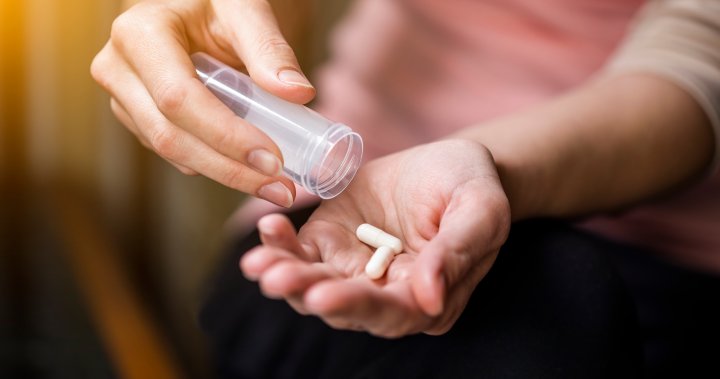
Fluvoxamine, an antidepressant, could help to treat COVID-19: study
Global News
A new clinical trial has found that fluvoxamine — commonly used to treat depression — seems to reduce the risk of hospitalization with COVID-19.
The drug fluvoxamine, commonly used to treat obsessive-compulsive disorder or depression, shows promise as a treatment for COVID-19, according to a new study.
The study, published Wednesday in the journal Lancet Global Health, found that high-risk patients who took the pills shortly after being diagnosed with COVID-19 were less likely to end up in hospital than others who took a placebo.
“I think almost everybody at an early stage of the infection will benefit from this,” said the study’s lead author, Ed Mills, a professor of health sciences at McMaster University.
The study involved about 1,500 people in Brazil who were randomly assigned to receive either fluvoxamine or a placebo after they had tested positive for COVID-19 and showed symptoms. The patients were all at high risk of developing complications from COVID-19 due to either advanced age or other comorbidities, Mills said.
Patients who took fluvoxamine were 32 per cent less likely to be hospitalized than those who took the placebo, the study found. Fluvoxamine patients were hospitalized 11 per cent of the time, compared to 16 per cent of placebo recipients. This effect increased when patients carefully took all of their drugs.
“The absolute risk reduction is huge in the circumstance,” Mills said. “What we find is that you only need to treat 20 people to prevent one hospitalization.”
The drug is relatively cheap and accessible, too, Mills said, costing around $4 for a course of treatment. This means a hospitalization might be prevented for only around $80 to $100, according to Mills, “as opposed to thousands and thousands of dollars if somebody is hospitalized.”
Fluvoxamine belongs to the family of selective serotonin reuptake inhibitor drugs (SSRIs) and is currently approved in Canada and many other countries to treat depression and obsessive-compulsive disorder. But this drug has some other effects that made it worth investigating, Mills said.

 Run 3 Space | Play Space Running Game
Run 3 Space | Play Space Running Game
 Traffic Jam 3D | Online Racing Game
Traffic Jam 3D | Online Racing Game
 Duck Hunt | Play Old Classic Game
Duck Hunt | Play Old Classic Game